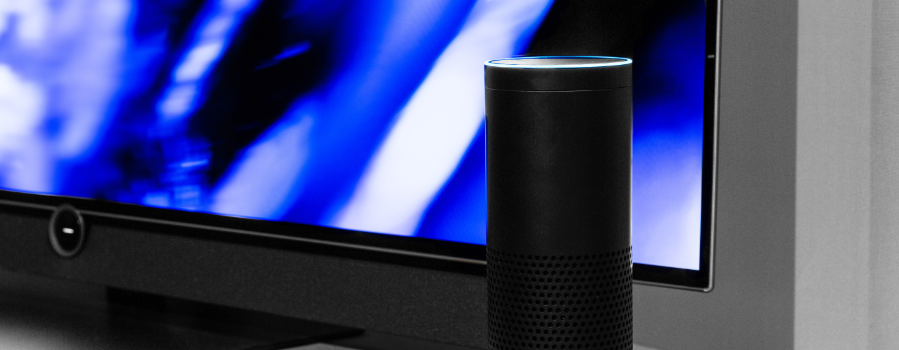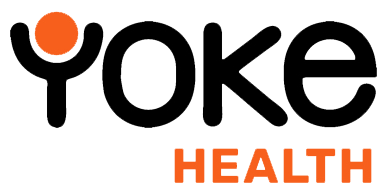5 reasons why intelligent bots will change the landscape of digital healthcare
Posted in Digital Healthcare Insights
Matt Davies - Head of strategy & Innovation.
With the announcement that a partnership has been forged between Amazon and the NHS, UK healthcare could be on a tipping point for intelligent healthcare tech.
The program, which launched in July, serves up information straight from the NHS website via Amazon’s home ‘Echo’ assistant.
“[it’s right for the NHS to] embrace technology in this way, predicting it would reduce pressure on “our hard-working GPs and pharmacists. We want to empower every patient to take better control of their healthcare”.
Matt Hancock, Health Secretary
For those in the world of healthcare tech, this step throws up a litany of issues. From privacy concerns to criticisms that this step makes the NHS less accessible, the reasons for objection have been far and wide-ranging. Yet for us – a healthcare digital marketing agency that celebrates all that tech can do for healthcare, this partnership is simply flat-out unambitious. It’s FAR behind what intelligent bots are capable of. Here are five good reasons why the government should set their sights a little higher.
1. Virtual health assistants could (and should) be everyone’s first aider – patient and the NHS
“The NHS is at breaking point”
“Patients ‘in pain and distress’ as NHS six-month waits hit new record”
When intelligent bots combine with voice recognition technology, voice biometrics, and EHP interactions, intelligent virtual health assistants could save time, reduce staff burnout and drive efficiencies.
They could handle the first conversation upon a patient’s arrival – checking them in, triaging them or allowing staff to be more productive through booking management with a conversational interface. They could allow people to search records faster, transcribe data during patient visits and support medical staff as they search or check information as they diagnose or treat their patient.
If you used to their maximum potential, virtual health assistants could do nothing less than transform the NHS.
2.Intelligent bots will go FAR beyond searching a website and reading out a page
Intelligent bots not only have a depth of data to draw on in relation to medical conditions, they’re also able to access patient history. While once this may have concerned patients, the rise of wearables and, more powerfully, the increasing use (and trust in) chatbots for business will ease people into bots for healthcare.
“By 2020, 80% of enterprises will use chatbots”.
Already, 27% of consumers are comfortable with AI chatbots in healthcare (this compares to 34% when used in retail), and the unstoppable chatbot uptake by businesses in every industry will only serve to make healthcare service users ever more comfortable.
3. Intelligent bots will help patients take charge of their own health and well-being
As intelligent bot technology inevitably becomes more ingrained in our lives, we can also look forward to taking charge of our own health. Recommendations could be given for preventative health services, such as immunisations, smears, mammograms, colorectal cancer tests and other screens, as well as reminding the person who hasn’t injected their insulin or taken their MS medication. This could assist the 40% of doctors who say that non-adherence to healthcare basics such as these impact their ability to provide optimal care.
4. Intelligent bots will lift the burden of menial tasks
When we say menial, we don’t mean merely reading text from the NHS website. We mean intelligent bots that could explain lab results to patients (something considered to unnecessarily tie up doctor’s time when the results don’t have serious consequences for the patient). Instead, AI mobile apps, powered by natural language processing capabilities, will reduce the time patients have to wait for their results, while doctors make better use of their skills.
5. Intelligent bots will help promote healthcare and well-being products, and signpost patients to where they need to be
Pharmaceutical companies can now use bots to promote new facilities or make existing users aware of a new product or package. Doctors could create chatbots that make locals aware of the clinics they put on, the full range of services they provide and signpost patients more efficiently.
Intelligent bots in healthcare are capable of the incredible. And while the promise and potential of this technology is worth more investment from the UK government, the fact that virtual home assistants are being embraced is, at least, a starting point. Meanwhile we watch and wait to see how private medical firms and pharmaceutical companies will benefit over the coming ten years – a period which, we’re certain, will be a time of exhilarating leaps and bounds for intelligent healthcare tech.
At Yoke Health, we are champions of life-improving, healthcare-transforming digital technology.
We develop solutions that engage and inform healthcare audiences, like Astellas – the searchable mapping tool allowing HCP’s to ‘track and compare’ regional hospital disease cases. Like e-Detail aid Roche and Janssen’s CPD education app.
And this digital healthcare agency can’t wait for intelligent bots to deliver on all they’ll provide for the future of healthcare.

Monthly Archives
- July 2023
- July 2020
- June 2020
- May 2020
- April 2020
- March 2020
- February 2020
- January 2020
- December 2019
- October 2019
- September 2019
- August 2019
- July 2019

